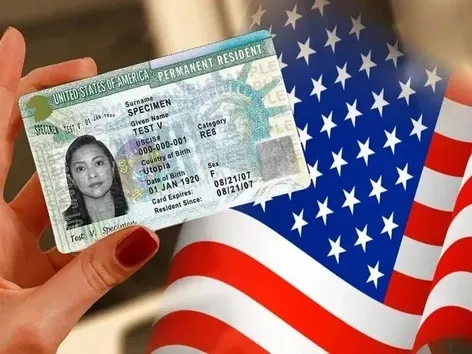INFORMATION
Resident Permit: Your Essential Guide to Living Legally Abroad
For individuals seeking to live, work, or study in a foreign country for an extended period, a resident permit is an indispensable document. Unlike short-term visas, a resident permit grants a foreign national the legal right to reside in a country for a fixed or indefinite duration, opening doors to various opportunities and services. This comprehensive guide provides an SEO-focused overview of resident permits, their types, benefits, and how to obtain them in key global regions like the USA and Europe.
What is a Resident Permit?
A resident permit (also known as a residence permit or residence card) is an official government-issued document that authorizes a foreign national to legally reside in a specific country for a predetermined or indefinite period. It serves as proof of your legal status and is crucial for accessing local services and integrating into society.
Key distinctions:
Visa vs. Resident Permit: A visa typically authorizes initial entry and short-term stays (days to months), while a resident permit enables long-term or permanent residence (usually starting from one year). Resident permits generally grant broader rights, including work authorization, study options, and access to social services.
Resident Permit vs. Citizenship: A resident permit grants the right to live and work, but not typically full political rights (like voting) or unrestricted travel. Citizenship, on the other hand, offers full rights, including a passport and often cannot be revoked except in rare cases.
Types of Resident Permits
Resident permits can broadly be categorized into temporary and permanent, each with distinct features:
Temporary Resident Permit (TRP):
Purpose: Issued for specific purposes such as work, study, family reunification, or investment.
Duration: Valid for a fixed period (e.g., 1-5 years), requiring regular renewal.
Restrictions: May have restrictions on employment type or location, and often requires a minimum physical presence in the country.
SEO Keywords: “temporary residence permit,” “work permit visa,” “student residence permit,” “family reunification visa.”
Permanent Resident Permit (PRP):
Purpose: Grants indefinite stay rights.
Duration: Does not expire, though the physical card may need renewal every 5-10 years.
Benefits: Offers broader employment rights, access to social benefits, and fewer renewal obligations. It’s the highest level of residence rights below citizenship.
SEO Keywords: “permanent residence card,” “green card application” (USA specific), “long-term resident status.”
Resident Permits in the USA: The Green Card
In the United States, the equivalent of a permanent resident permit is the Permanent Resident Card, commonly known as a Green Card.
Purpose: Grants foreign nationals the right to live and work permanently in the USA.
Pathways: Can be obtained through various categories:
Family-Based: Sponsorship by a U.S. citizen or lawful permanent resident relative.
Employment-Based: Through a job offer from a U.S. employer or certain investment programs (e.g., EB-5 visa).
Diversity Visa Lottery: A lottery program for individuals from countries with historically low rates of immigration to the U.S.
Asylum/Refugee Status: For individuals granted asylum or refugee status.
Benefits: Allows holders to live and work anywhere in the U.S., travel freely, and eventually apply for U.S. citizenship (typically after 5 years).
SEO Keywords: “how to get a green card,” “US permanent residency,” “employment-based green card,” “family sponsorship green card.”
Resident Permits in Europe: Diverse Pathways
Europe, comprising EU/EEA countries and other nations, offers various types of resident permits, often harmonized by EU directives.
EU/EEA Member States:
EU Blue Card: For highly qualified non-EU professionals to live and work in an EU country (excluding Denmark, Ireland).
National Resident Permits: Each country offers permits based on work contracts, study, family reunification, or specific investment programs (e.g., “Golden Visas” or Residency by Investment).
Long-Term EU Resident Status: After 5 years of continuous legal residence in an EU country, non-EU nationals can apply for “long-term EU resident” status, which facilitates obtaining residence permits in other EU countries.
SEO Keywords: “EU Blue Card application,” “European residency by investment,” “student visa Europe,” “long-term EU resident permit.”
Common Pathways in Europe:
Work Permits: Tied to an employment contract with a local employer.
Study Permits: For enrollment in recognized educational institutions.
Family Reunification: For joining family members who are already legal residents or citizens.
Investment Programs (Golden Visas): Several EU countries offer residency in exchange for significant investments (e.g., real estate, business capital). These are “Residency by Investment” programs that can lead to permanent residency and eventually citizenship after meeting specific criteria.
Digital Nomad Visas: Increasingly popular, these permits allow individuals working remotely for foreign companies to reside legally.
SEO Keywords: “how to get residency in Europe,” “European golden visa,” “digital nomad visa Europe,” “EU work permit.”
How to Apply for a Resident Permit (General Steps)
While specific requirements vary by country and permit type, the general application process often includes:
Determine Eligibility: Identify the correct permit type based on your purpose of stay and nationality.
Gather Documentation: Prepare all required documents, such as a valid passport, proof of financial means, health insurance, criminal record certificates, marriage/birth certificates (for family-based applications), and educational/employment documents.
Submit Application: Apply through the relevant immigration authority (e.g., embassy/consulate in your home country, or an immigration service within the host country). Many countries offer online application portals.
Biometric Data: Attend an appointment for fingerprinting and photo capture.
Interview: Some applications may require an interview.
Processing Time: Be aware of the processing times, which can vary significantly.
Collection: Collect your resident permit once approved.
SEO Keywords: “resident permit application process,” “documents for residence permit,” “immigration requirements [Country Name].”
Benefits of Holding a Resident Permit
Holding a resident permit unlocks numerous advantages:
Legal Right to Live: Establishes your legal right to reside in the country beyond short-term tourist stays.
Work Authorization: Grants the ability to work legally, often without the need for additional work permits.
Access to Services: Enables access to public healthcare, education, social security, and banking services.
Travel Flexibility: For EU resident permit holders, it often allows visa-free travel within the Schengen Area for short stays.
Pathway to Permanent Status/Citizenship: Temporary permits can often lead to permanent residency, and eventually, citizenship, after fulfilling continuous residence requirements.
SEO Keywords: “benefits of resident permit,” “rights of legal residents,” “immigrant services.”
SEO Best Practices for Resident Permit Content
To ensure content about resident permits ranks well and reaches the target audience:
Target Specific Keywords: Use precise terms like “resident permit,” “residence card,” “Green Card,” “EU Blue Card,” and country-specific terms (e.g., “German residence permit,” “Spanish Golden Visa”).
Provide Clear Pathways: Outline step-by-step application processes for different permit types and regions.
Address Eligibility: Clearly state who is eligible for various permits.
Highlight Benefits: Emphasize the advantages of holding a resident permit.
Include FAQs: Answer common questions about the process, requirements, and distinctions from other documents.
Link to Official Sources: Always refer users to government immigration websites for the most accurate and up-to-date information.
Mobile Optimization: Ensure content is easily readable and navigable on mobile devices.
Understanding the nuances of resident permits is vital for anyone planning a long-term stay abroad. By leveraging this guide, individuals can confidently navigate the immigration landscape and secure their legal right to reside in their chosen country.

